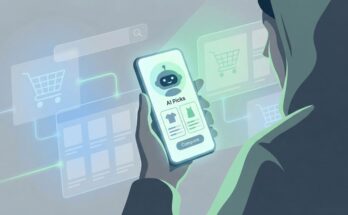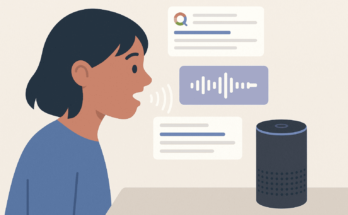Artificial intelligence is revolutionizing how students learn. Instead of classrooms where every student receives identical lessons, AI-powered personalized learning systems adjust content to match each learner’s unique needs, pace, and style. This transformation isn’t futuristic fiction, t’s happening right now in classrooms and training centers worldwide.
What Is AI-Powered Personalized Learning?
AI-powered personalized learning combines artificial intelligence with educational technology to create customized learning experiences for each student. Rather than the traditional one-size-fits-all approach, these systems analyze student data in real-time and adapt lessons accordingly. The result? Students receive exactly the content they need, when they need it, in the format that works best for them.
The global market for AI in education was valued at $5.88 billion in 2024 and is projected to grow to $8.30 billion by 2025. This explosive growth reflects how seriously educators and institutions are investing in smarter learning solutions.
How AI Personalizes Learning Experiences
AI personalizes education through several key mechanisms. Adaptive learning systems continuously monitor student performance and adjust lesson difficulty in real-time. If a student struggles with a concept, the system provides additional practice and support. Conversely, when mastery is demonstrated, the system progresses to more challenging material.
Intelligent tutoring systems function like virtual personal tutors. These AI-powered platforms observe how students work through problems, offer contextual hints, provide immediate feedback, and recommend the next learning activities. They’re available 24/7, making quality tutoring accessible to everyone regardless of location or socioeconomic status.
Predictive learning paths represent another powerful application. By analyzing a student’s historical learning data, AI algorithms forecast where challenges might arise. The system then recommends personalized next steps, ensuring students move forward efficiently without becoming overwhelmed. AI-powered mind mapping tools take this further by automatically converting textbooks, articles, and notes into visual mind maps that help learners see connections between concepts.
The Measurable Impact on Student Outcomes
The evidence supporting AI personalized learning is compelling. Research shows AI tools boost test scores by an impressive 62% using adaptive learning methods. Additionally, 53% of educational institutions report that AI significantly increases student engagement. Teachers benefit too: AI grading systems reduce their workload by 70%, freeing them to focus on meaningful interactions with students.
Platforms like Duolingo, Coursera, and Squirrel AI demonstrate these results at scale. Students using these platforms progress faster, retain information better, and maintain higher motivation levels compared to traditional learning methods.
Key Benefits for Students and Educators
Personalized learning benefits all stakeholders. Students experience education tailored to their learning preferences and pace, leading to improved engagement and confidence. They receive immediate feedback and targeted support exactly when needed. Educators gain insights into each student’s progress and can make data-driven interventions. Administrative staff see reduced paperwork and more efficient resource allocation.
Furthermore, personalized learning democratizes education. Students in under-resourced schools can access quality tutoring through AI systems. Students with diverse learning needs, from gifted learners to those requiring additional support, all benefit from customized content delivery.
Implementation Challenges and Considerations
Despite its promise, implementing AI personalized learning presents challenges. Privacy concerns regarding student data collection and usage require careful attention. Schools must ensure robust data protection and transparent policies about how student information is used. Technical infrastructure demands are substantial; schools need reliable internet connectivity and device access.
Teacher training represents another critical consideration. Educators must understand how to work effectively with AI systems and interpret the data these platforms provide. Professional development is essential for successful implementation.
The Future of Personalized Learning
The future promises even more sophisticated personalization. Hyper-personalized AI tutors will adjust to students’ emotional states and learning habits. Emotion detection technology will enable systems to recognize frustration, confusion, or excitement and adapt lessons accordingly. Integration with virtual reality will create immersive, customized learning experiences in virtual environments.
Lifelong learning will receive unprecedented support. AI systems will guide learners from early childhood through professional development and career transitions, continuously adapting to evolving needs and skills.
Getting Started with AI Personalized Learning
For educators considering AI adoption, start small. Select one pilot course or student group. Choose an AI platform aligned with your educational goals. Invest in teacher training before launch. Collect feedback regularly and be prepared to adjust your approach.
Students and parents should seek learning platforms emphasising transparency about data usage and offering customisation options. Look for systems providing detailed progress reports and insights into learning patterns.




